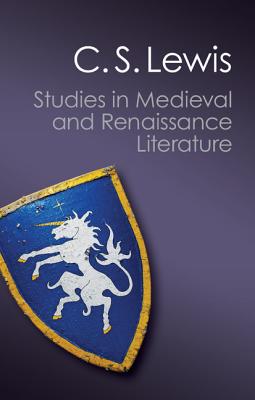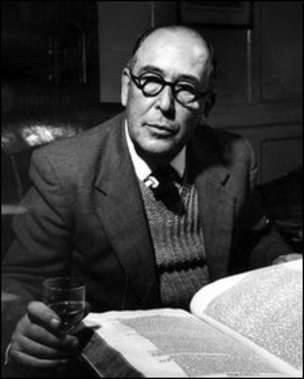Knowing history is important. For the last thirty-one years, I’ve taught history full-time at different Christian universities. As I noted in a recent post, I’m now an adjunct professor. Yet that change in my life has somehow increased my desire to make sure people know history better, maybe because I’m sensing that my opportunities for teaching may decline in the coming years.

C. S. Lewis has a number of noteworthy comments about history in his many writings. For instance, an essay on the poet Edmund Spenser, part of the collection Walter Hooper put together as Studies in Medieval and Renaissance Literature, reminds us that people are often bound by their own time and place; as a result, they can’t see beyond what surrounds them in their everyday lives. They have a tendency to evaluate everything through that narrow prism. Lewis explains it this way:
There is a great difference between rejecting something you have known from the inside and rejecting something (as uneducated people tend to do) simply because it happens to be out of fashion in your own time.
It is like the difference between a mature and travelled man’s love for his own country and the cocksure conviction of an ignorant adolescent that his own village (which is the only one he knows) is the hub of the universe and does everything in the Only Right Way.
For our own age, with all its accepted ideas, stands to the vast extent of historical time much as one village stands to the whole world.
To me, there are things that seem more out of fashion in our society in this particular historical period—things like integrity, principles, civil conversation between opposing points of view in politics. As a historian, I’m quite aware that there is no golden age where those features were carried out perfectly, but comparisons can be made from one era to the next. The way we operate currently is simply our own little village and many have no concept that the accepted ideas upon which we operate may not have been accepted in previous ages.
Lewis also touched on this subject in one of my favorite of his essays, “Learning in War-Time.”

“We need intimate knowledge of the past,” he argued. Show me a history professor who won’t love that sentiment. “Not that the past has any magic about it,” he accurately noted, “but because we cannot study the future, and yet need something to set against the present.” For what purpose? “To remind us that the basic assumptions have been quite different in different periods and that much which seems certain to the uneducated is merely temporary fashion.” Those words mirror the previous quote in the Spenser essay, but then he adds to them:
A man who has lived in many places is not likely to be deceived by the local errors of his native village: the scholar has lived in many times and is therefore in some degree immune from the great cataract of nonsense that pours from the press and the microphone of his own age.
Might we add Facebook and Twitter to that observation?

I have attempted over the past forty years, from the time I returned to the classroom to get my master’s and doctorate, to be one of those scholars. During that time, I’ve never stopped learning, and I can say fairly accurately that I have lived in many times and places. My primary residence has been in American history—all periods, all cultural shifts, all philosophies of government. Nothing that happens in our era is truly unique. The particulars may be slightly different, along with the advance in technology, but the heart of man has remained constant. The lessons that earlier eras had to learn are lessons that often need to be relearned today.
As a result, I’m not surprised by what occurs in the culture and politics of our day. I’ve seen most of it in what has transpired before, and I’m glad that I’ve had that experience. It keeps me better grounded and provides greater perspective. Yes, I have my deep concerns about many things in American society, but I don’t despair. Instead, I recognize that these problems and issues are merely echoes of what we have passed through at other times. I try to keep this in mind:
To everything there is a season, and a time for every purpose under heaven: a time to be born and a time to die, a time to plant and a time to uproot, a time to kill and a time to heal, a time to break down and a time to build, a time to weep and a time to laugh, a time to mourn and a time to dance, a time to cast away stones and a time to gather stones together, a time to embrace and a time to refrain from embracing, a time to search and a time to count as lost, a time to keep and a time to discard, a time to tear and a time to mend, a time to be silent and a time to speak, a time to love and a time to hate, a time for war and a time for peace.
Ecclesiastes 3:1-8
When you go to the very end of that book, you get the proper summation of it all:
When all has been heard, the conclusion of the matter is this: Fear God and keep His commandments, because this is the whole duty of man. For God will bring every deed into judgment, along with every hidden thing, whether good or evil.
Ecclesiastes 12:13-14
That’s how I want to live my life, however many years the Lord still has in store for me.
